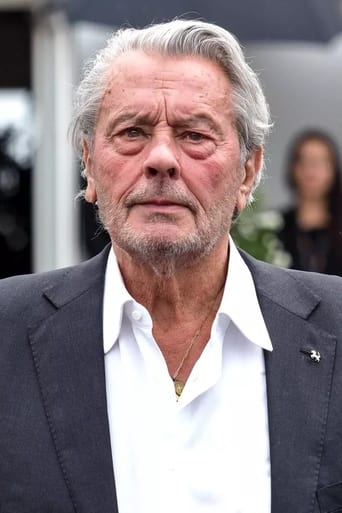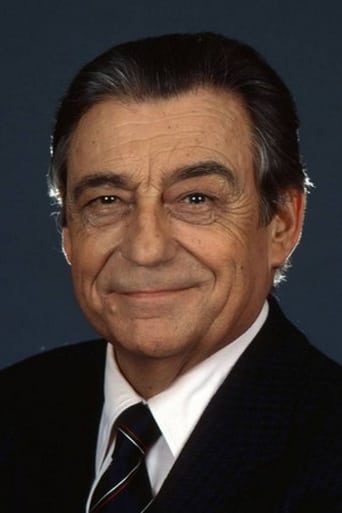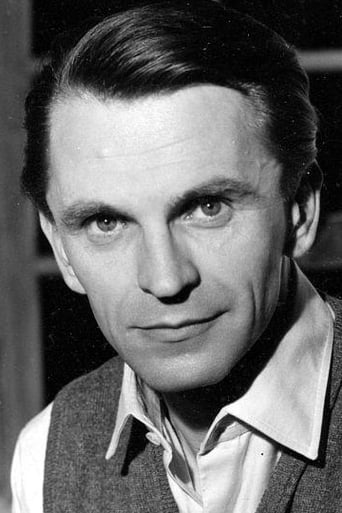SoftInloveRox
Horrible, fascist and poorly acted
CrawlerChunky
In truth, there is barely enough story here to make a film.
Bluebell Alcock
Ok... Let's be honest. It cannot be the best movie but is quite enjoyable. The movie has the potential to develop a great plot for future movies
Billy Ollie
Through painfully honest and emotional moments, the movie becomes irresistibly relatable
OneEightNine Media
A slow burn but a good burn. This film is mostly coolness factor all the way but not for days, Daddy-O.
Just kidding but you get my point. This film is very self aware and wears it well. It could have had more of a impactful conclusion but it was going for an authentic samurai Japanese noir or whatever. It is cool but not as hip as it should have been.
adrian-43767
Alain Delon has always been one of my favorite actors and this is probably his most accomplished performance as Jef, not least because it is so minimal - and yet there is a character there, a loner who cares for his caged sparrow. The latter is a reflection of Jef, who is trapped and unable to venture out of the world of crime. Like him, the sparrow is constantly on guard against intruders into this closed world, doubling up as watchdog that shrieks to warn Jef of an unwanted presence in the apartment. That relationship alone takes Le Samourai into a different dimension of perception and awareness.The film opens with a reportedly false quote comparing a samurai to a tiger in the jungle. Jef is on his bed, hardly visible, detectable only through a puff of cigarette smoke. This sets the mood for the rest of the film: silence, introspection, and no desire to communicate, let alone explain one's motives. It is a code and Jef abides by it.The sequence that sees Jef steal a Citroen DS is made memorable by Delon's deadpan acting, reflecting both vulnerability and commitment to his samurai-like code, all to an eerie silence. As he drives along, he gets an inviting glance from a beautiful woman driving another vehicle, but ignores her completely. Jef has no interest in distractions like sex, but has two women in his life, one white and blonde (his wife at the time, Nathalie Delon) and the other black, who function like angels of good and bad, life and death, and it is with them mainly that Delon shows touches of humanity and concern.The way he builds his alibi to avoid being charged for the execution of a bar/dance hall owner is highly professional and riveting, brilliantly done throughout, and followed by a subtly comic identification sequence at the police precinct where the witness only does not recognize his face, but remembers all he wore. François Périer is superb as the police captain determined to catch him, and he is perhaps the character who has most lines in the film, but all parts are extremely well acted. The barman is particularly effective in a very short role, looking surprised when he sees Jef act uncharacteristically, and unprofessionally, when he returns to the scene of his crime, thereby breaking his code.Le Samourai is punctuated by quite a few wonderful sequences, action is credible, photography very good and yet economical, and director Jean-Pierre Melville is probably in his best form ever. Given that he made some six or seven films of the highest order, that is no minor feat.This is a much imitated, but never equalled, work. It also has the advantage of no computer tricks, no bombs exploding, no unnecessary violence - just an assassin doing his job. He goes about it zealously, seemingly unflinchingly, but his conscience becomes increasingly present.Le Samourai does not moralize but you come away knowing that, however stylish Delon is, however seductive reclusiveness might seem, and however enticing such professionalism might be, ultimately you cannot run away from yourself.John Woo rated it the most perfect film he ever saw, and I endorse that rating, with a caveat that there are three or four films that I would place on a similar perch. Pity 10/10 is the highest mark I can give, Le Samourai deserves more.
Ross622
Jean-Pierre Melville's "Le Samourai" is a movie that not only ranks with "The Godfather" (1972), or "Goodfellas" (1990) as one of the best gangster movies ever made, it is also the best movie about a hit-man that I have seen since "Collateral" (2004). The movie stars Alain Delon as a hit-man named Jef Costello in a performance that reminded me so much of Tom Cruise's Vincent in "Collateral" because both characters in the two different films. Costello is also a contract killer like Vincent who is one of the suspects in the murder of a guy who works for a nightclub (of which he was paid to do), then the movie entangles itself into a whodunit type of movie with the investigation scenes. His girlfriend named Jane Lagrange (Nathalie Delon, who was Alain Delon's wife during the making of this movie) who is threatened of being charged of the same crime as being an accessory to murder. During the investigation scenes Melville makes us question what really happened even though we saw what happened before our very eyes. After Costello is let loose of the investigation he meets one of the men who paid him to commit the crime and Costello is almost killed during the encounter, and then gets spied on for the rest of the movie and seeks revenge. The only witness to the murder was a black woman who also happens to be a pianist at the same nightclub named Valerie (Cathy Rosier) who then gets questioned about who committed the murder by Le commissaire (Francois Perier). All i'm going to say about the ending of this movie is that it has a very eerily similar ending to that of "Bonnie and Clyde" (1967)and I won't spoil it. With a movie like this Melville has proved himself to me to be one of the great European filmmakers like Francois Truffaut, Michael Haneke, Ingmar Bergman, and Federico Fellini. Also when it comes to the screenplay for this movie co- written by Melville and Georges Pellegrin has practically no dialogue at all like there wasn't that much in Kubrick's "2001: A Space Odyssey" (1968) even though those are two very different films. This movie should have gotten several Oscar nominations, and practically everything about this movie makes it a flawless masterpiece. This is one of 1967's best films.
Ore-Sama
Much like Hitchcock, Melville had an assembly line of masterpieces, with most film makers lucky to have even one film on any of their levels. Both film makers also made their most career defining films closer to the end of their run. In Hitchcock's case, it was the 1960 film, "Psycho". In Melville's case, it was 1967's "Les Samurai", among the most influential films ever made. Not only did it inspire imitators on an international level (such as "The Driver"), but director's entire filmographies, such as Quentin Tarantino, Martin Scorcesse and John Woo, owe a debt to this one movie.The first shot has Jeff Costello, our lead, laying in a smoke filled room, before we go on a step by step process as he gets ready for his next job in a dialogue free 10 minutes where we soak in the look and mood. A greyish look to what is otherwise a colorful film, often with the only accompanying noise being foot steps across the pavement, inserting music only where fitting, without breaking the mood. This is in addition to each beautifully composed shot.Jeff carries out his hit, killing a night club owner, but is rounded up in an intense twenty minute sequence where the police, try to find the killer among the line. Of course it's too early in the film for Costello to be taken to prison, we realize as a viewer, but the suspense comes in knowing Jeff killed the man and going step by step as the police at first are only going through person by person, but begin to suspect Costello and use every tactic they can to try and implicate him. I won't spoil how he gets out, but trust me when I say even on repeat viewings, the tension of this entire part does not falter.Although let go, he is trailed by the police and sought after by former employer, who fear him getting caught and ratting them out to police. For much of the movie we are treated to a cat and mouse game where he evades both sides constantly, whether through a memorable sub way chase or an almost western style shoot out. Smooth editing and tight pacing combine with the great visuals to create a brisk thriller that despite often being free of dialogue, never gets dull and never overstays it's welcome. Melville is a master of detail, going through things step by step (whereas most would cut out many details), only piling on the suspense. There's also many little touches, such as how we almost never see Costello draw his gun, it just is suddenly in his hands (in most cases anyway).Now I could talk about the aesthetics of this movie for longer, but one common quip about this film is that it is style more than substance. Now I won't deny style is a big part of the appeal, but I don't feel the film is lacking. It's a simple story, but effective. Not just for the crime thriller aspects, but Jeff himself, played with cold calculation as well as subtle intimidation by Alan Demoine. He talks very little, and his motivations are ambiguous. It's comically common for a movie to be called existential simply because it's arty, but in this case it applies. Jeff's motives are never made entirely clear. We are left only to try and interpret what he's thinking at any given time, only knowing he is driven by some inner code of conduct. Ultimately this is what the movie is about, not the cops, not the double cross, but Jeff himself. He is a fascinating character and one could talk endlessly about what drives him and what the ending was about.If you can appreciate films driven more by suspense than action, more vague than explained, such as "Bullit", "Point Blank", "The French Connection", etc. than "Le Samurai" is up your alley.








